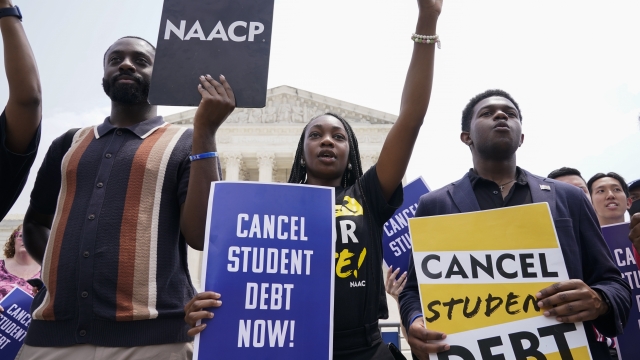The spring semester may be over at the University of Washington in Seattle, but the campus is still alive with students taking summer courses.
While their coursework may be top of mind, they're also thinking about the national conversation around student loan relief.
"Being in a place where it is a very expensive school to go to ... it kind of creates that wealth disparity for students across the campus," said UW undergraduate Stephen Woodham.
Woodham doesn't have student loans himself, but he sees how they burden his friends who, he says, are making sacrifices in order to manage their debt loads.
"Some students have to rush their college experience because they can't take out as many loans," he said.
The Biden Administration's plan to cancel $10,000 of student debt for millions of low to middle-income Americans and up to $20,000 for qualifying borrowers had kicked off a debate: Should Americans receive any debt relief from the government for loans they took out? Or should they be obligated to pay their loans back in full?
SEE MORE: How can you still legally discharge student debt?
The Supreme Court has decided, and struck down the student loan forgiveness program. Undergrad Royale Williams and her friends say they wanted a different outcome.
"Student loan forgiveness for me and as well as other friends of mine, is such a big deal considering that it is such a big burden that they're gonna have to carry probably for the rest of their lives and ... unfortunately, probably not be able to pay it back," she said.
Williams is a first-generation college student who grew up on her Karuk tribe's ancestral lands in California. She says loan forgiveness would help ensure more economic diversity on campus.
"I think it would be terrific when it comes to just also allowing more first gen low income students like me and other friends and colleagues of mine to pursue higher education," said Williams.
Woodham and Williams are both frustrated with those making decisions who they say don't seem to grasp the financial and mental burdens students face with the skyrocketing cost of higher education.
"It's impacting people's lives at the end of the day and so, without taking that into account, there's no way to make the necessarily correct decision without at least thinking about that," said Woodham.
Trending stories at Scrippsnews.com





